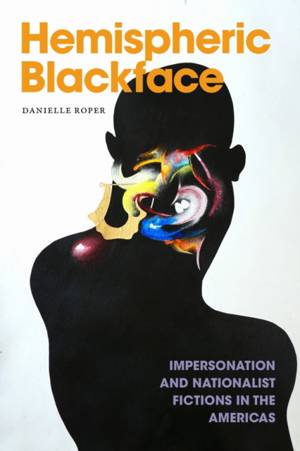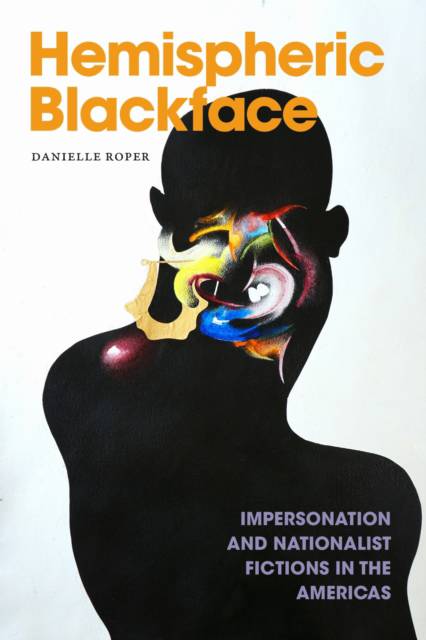
Bedankt voor het vertrouwen het afgelopen jaar! Om jou te bedanken bieden we GRATIS verzending (in België) aan op alles gedurende de hele maand januari.
- Afhalen na 1 uur in een winkel met voorraad
- In januari gratis thuislevering in België
- Ruim aanbod met 7 miljoen producten
Bedankt voor het vertrouwen het afgelopen jaar! Om jou te bedanken bieden we GRATIS verzending (in België) aan op alles gedurende de hele maand januari.
- Afhalen na 1 uur in een winkel met voorraad
- In januari gratis thuislevering in België
- Ruim aanbod met 7 miljoen producten
Zoeken
€ 41,45
+ 82 punten
Uitvoering
Omschrijving
In Hemispheric Blackface, Danielle Roper examines blackface performance and its relationship to twentieth- and twenty-first-century nationalist fictions of mestizaje, creole nationalism, and other versions of postracialism in the Americas. Challenging both the dominance of the US minstrel tradition and the focus on the nation in blackface studies, Roper maps a hemispheric network of racial impersonation in Peru, Bolivia, Colombia, Jamaica, Cuba, and Miami. She analyzes blackface performance in the aftermath of the turn to multiculturalism in Latin America, the emergence of modern blackness in Jamaica, and the rise of Barack Obama in the United States, showing how blackface remains embedded in cultural entertainment. Contending that the Americas are linked by repeating nationalist fictions of postracialism, colorblindness, and myths of racial democracy, Roper assesses how acts of impersonation mediate the ongoing power of these narratives and enable people to comprehend advancements and reversals in racial equality. Rather than simply framing blackface as liberatory or oppressive, Roper traces its emergence from a shared history of slavery and the varied politics of racial enjoyment throughout the hemisphere.
Specificaties
Betrokkenen
- Auteur(s):
- Uitgeverij:
Inhoud
- Aantal bladzijden:
- 256
- Taal:
- Engels
- Reeks:
Eigenschappen
- Productcode (EAN):
- 9781478031888
- Verschijningsdatum:
- 23/05/2025
- Uitvoering:
- Paperback
- Formaat:
- Trade paperback (VS)
- Afmetingen:
- 150 mm x 226 mm
- Gewicht:
- 430 g

Alleen bij Standaard Boekhandel
+ 82 punten op je klantenkaart van Standaard Boekhandel
Beoordelingen
We publiceren alleen reviews die voldoen aan de voorwaarden voor reviews. Bekijk onze voorwaarden voor reviews.









